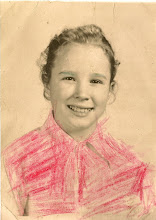"A King is supposed to have all that he needs without having to worry about anything in his late years. Yet King Lear, in Act 3, Scene 2, cried out pitifully: "I am a man / More sinned against than sinning." Although Lear has made a huge mistake in the first scene of the play in dividing up his kingdom and banishing his two dearest people, the sins his two other ungrateful daughters have done him is far greater than the extent of Lear's wrongs."
I don't know who wrote this, but I give full credit to the person on directessays.com who did because they put it well, King Lear's dilemma, which I have often related to my own. I once, or maybe twice, and possibly thrice have felt more sinned against than sinning. It is not the reason I picked this play as the one I love the best, but I do too have daughters, and though it was originally The Fool I identified with in this play (and he disappears in Act Three), there have been times I have identified with many more of the characters--Cordelia, Kent, even Goneril and Regan--especially when my aged, alienated and alienating father came to live with me--even the messengers. A mother is often the messenger.
Anyway, it is Lear himself I seemed to be echoing this morning as I explained to one daughter in reference to another, that there was a time when I too definitely felt "more sinned against than sinning." In my family the Stoic way, swallowing the drama of the emotional traumas that beset us all--see William Irvine's A Guide to the Good Life: the ancient art of stoic joy, rather than "working it through," is often how we deal with disillusionment and hurt, and loss of innocence, rather than picking the scab of painful memory and keeping it current. Yes, surely I too did once feel much more the victim, the one more sinned against than sinning.
What is required of one who would move on, when one has been more sinned against than sinning, is to think of it as being beyond the realm of what one has control of, and not letting it concern you ("God grant us the serenity to accept the things we cannot change, courage to change the things we can, and wisdom to know the difference.") As the author of the above book cited, William Irvine, wrote me recently in a letter exchange, the AAA prayer is basically based on Stoic principles, accepting rather than continually regurgitating the fact that "I have been a man more sinned against than sinning." We are all victims in this life of that which we cannot control, and deciding those things which we cannot control (past, present, future trauma) are simply not of our concern may be our best way of all of viewing them. "Spun of pain and sorrow bought/Death is but an ugly thought" I wrote once in a poem when I was sixteen, trying to deal with the death of my grandmother. So too, perhaps, are the thoughts that we have been more sinned against than sinning--just thoughts that need not be beleaguered.
Thursday, September 9, 2010
Subscribe to:
Post Comments (Atom)

All great poets, ive read , are clinically depressed , a prerequisite for writing great poetry , they attempt, with words , to describe , the pointlessness of existence .
ReplyDelete